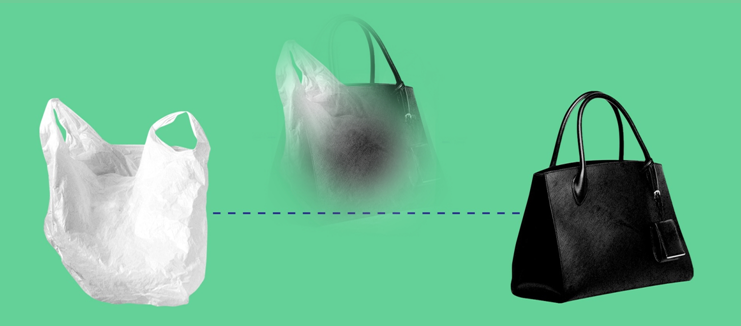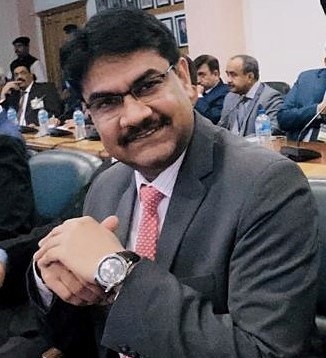Integrity Dilemma of Officers Originating from Lower Middle Class, and their Paradoxical Inability to Stand for any System Level Change
Dr Shakir A Shahid
It’s undeniable that most of the officers coming from the lower middle class, and entering into public offices, especially coming through competitive exams, are persons of knowledge, and come with good intentions. However, as it is said “road to the hell is paved with good intentions” a similar kind of phenomenon happens with these officers. On getting catapulted into the middle class and upper middle class, these officers are pressured to adopt middle-class morality with expectations to behave in a certain ‘upright’ and ‘responsible’ way.
Coming from a strata where scarcity of basic needs overrides lofty ideals and joining the one where moral scrutiny is tough puts these inter-class immigrants in a situation much similar to the “undeserving poor” of Pygmalion by George Bernard Shaw. While facing various external social pressures, family demands and internal cognitive drives to “shine in career and matter in circles” these mortals get caught in a serious dilemma when their underpaid jobs appear insufficient to provide them reasonable social security even. Informal working environments characterized by frequent transfers and suspensions leave them with no choice but to re-orient their strategies.
Actually, knowledge has a soul of its own, and the officers, by virtue of coming through knowledge based competitive processes, keep acknowledging the spirit of ethos and principles. But such men of knowledge are afflicted with an unalienable weakness, and that is their propensity to let go their freedom in lieu of security, though ideally, it is entirely unexpected from a person of real knowledge. This very transaction of selling the freedom for the sake of security and certainty brings fateful social consequences in the shape of the choices made by such ‘men of knowledge turned officers’.
Given the intense flux of pushes and pulls many officers succumb and start finding alternative means of certainty in the form of ‘money capital’. However, their journey does not stop on just amassing financial gains, as sooner or later they join various interest groups, and samely start adopting different sorts of ethical deviances also. More or less, barring a few exceptions, these officers transform into a ‘three-in-one’; mean they accumulate money, cultivate connections, and indulge in sensual pleasures. They generally get postings in organizations with huge budgets, secret and discretionary funds, heavy procurements—all places where corruption is predictable.
Generally considered as go-getters, in the real scheme of things, these 3in1s serve as the linchpins of neopatrimonialism and the facilitators of the shadow economy. In sheer contrast to 3in1s there is a class of officers which is 3out1 meaning they neither amass money capital nor accumulate social capital, and stay out of all kinda pleasures also, even when these come at no cost. In the whole distributional spectrum of bureaucrat officers these 3out1 are the most unfortunate, and sooner or later, are either expelled out of the services or voluntarily leave such services, and a few unlucky opt to leave this mortal world even. For them “what is life but a series of inspired follies? The difficulty is to find them to do” stands so true.
There is a sizable quantum of bureaucratic officers who do not indulge in earning monetary gains, but remain limited to cultivating relationships, connections and memberships—mostly clean, and all a kind of social capital—to serve as means of security and certainty. Few in this category take recourse to various deputations, including the UN, to earn a few chunks of monetary security, while some attempt to gather intellectual capital as a certainty source. Few ‘genius’ folks in this category adopt quite interesting ways like becoming a devoted disciple to any influential spiritual guru to secure their postings and positions. Some start using virtual interfaces for the publicity of their cosmetic alterations and reductionist interventions, and the few ones succeed in attaining such an extraordinary level of management that they can turn hells into heaven—but on PowerPoint.
Actually, the officers of financial integrity are not only the workhorse of their organizations, but the rosy face of their employing systems also. These officers keep flowing with the currents of the system by maintaining a safe distance from turbulent central layers. Due to their emotional intelligence, which enabled them to jump out of their lower middle class origins and join the middle class, nearly all are shrewd enough to know where to see and where to ignore, and where to speak and where to stay mum. One or two cars, one allotted house, few personal servants, a clout in society and public offices, and a fixed pay is the price of their whole person. However, these are quite unique in a sense that they belong to no world, and stand as a true embodiment of “I have to live for others and not for myself: that’s the middle class morality” (Pygmalion, George Bernard Shaw).
Whatever the nature of personal capabilities and good intentions, these officers and bureaucrats hold and harbor, they cannot vouch for any system level correction or dare to stand for any truth, as inevitably such attempts and stands come up with a price tag which these money starved integral folks are inherently incapable to pay. Despite knowing that their work cannot make any system level difference in the plight of the public, and, in one way or the other they are serving the elites, they have no option but to stay in the golden cage of their offices for maintaining a fake aura of their belongingness to the middle class or upper middle class.
The bureaucrats who opt to amass money capital are the ones who can take stand before the system if they decide, as over the time they have created a parallel system of their own. However, they too prove sterile due to a multitude of factors. Past baggage, flow dynamics of circles wherein they trade, and the psychological degradation which comes complimentary with the money earned by illegitimate means, make them inherently incapable of contributing any substantial good in the system. Rather, with the passage of time, such officers get desensitized, and lose the capacity to think of the system change even.
As a matter of roles performed and the outputs made most of the bureaucrats and officers become part of the system—some happily and some willy-nilly. Some violate financial integrity and the remaining compromise the intellectual one. However, there is a minute class of bureaucrats, both military and civil, which brings and can bring unexpected results. These are the mortals who put off every baggage, whether physical or cognitive, and despite facing all insecurities and the losses they transform themselves into a role of one man army to bring system level changes.
— Dr. Shakir Ahmad Shahid, P.S.P, Ph.D, is a Postdoc Fulbright Alumnus in Forensic Science and Criminology, who has served in various fields like Policing, Investigation, Intelligence and Counterterrorism (CT) at policy and operational levels as a Senior Police Officer and Director (CT). Dr Shahid holds the degree of Doctor of Philosophy in Chemistry, along with research publications in the fields of bio-materials, bio-energy, and forensic spectroscopy. In addition to the degrees of Master in Psychology, M.Sc Chemistry, L.L.B, B.Sc (Biology), he is a Ph.D research Scholar in Criminology, and a passionate researcher in theoretics of complex systems, negentropes, socionics, dissociation, suicide, homicide, social behavior re-engineering, national narrative, policing the hybrid societies, intelligence, corruption, circular governance, sustainable national security, electromagnetic spectrum, and management of forensic evidence. He can be reached at [email protected]; drshakirahmad.medium.com; www.drshakirahmad.com



